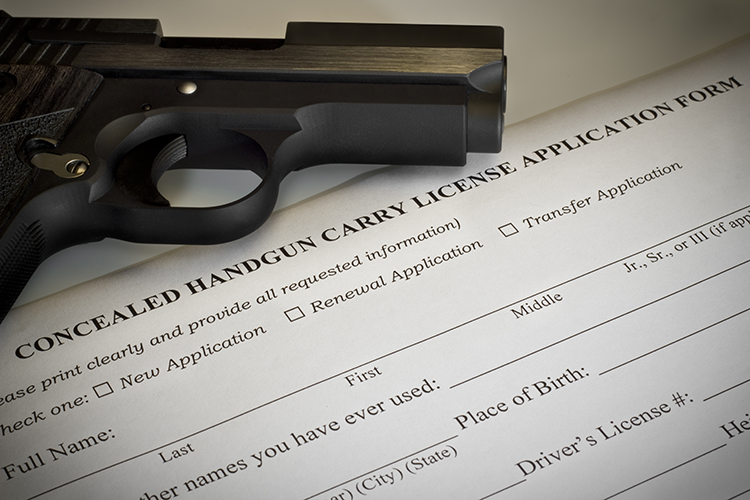Convicted welfare fraudster had no Second Amendment right to own gun, 3rd Circuit says

Image from Shutterstock.
A man who pleaded guilty to understating his lawn-mowing income to obtain $2,458 in food stamps had no Second Amendment right to own a gun, a federal appeals court ruled Wednesday.
The 3rd U.S. Circuit Court of Appeals at Philadelphia ruled that the felony-equivalent conviction placed Bryan David Range outside the class of people traditionally entitled to Second Amendment rights.
The Nov. 16 decision is the first by a federal appeals court to assess Second Amendment protections under the historical framework established in the U.S. Supreme Court’s June decision in New York State Rifle & Pistol Association Inc. v. Bruen, according to the Volokh Conspiracy.
“Based on history and tradition,” the 3rd Circuit said, “we conclude that ‘the people’ constitutionally entitled to bear arms are the ‘law-abiding, responsible citizens’ of the polity, … a category that properly excludes those who have demonstrated disregard for the rule of law through the commission of felony and felony-equivalent offenses, whether or not those crimes are violent. Additionally, we conclude that even if Range falls within ‘the people,’ the government has met its burden to demonstrate that its prohibition is consistent with historical tradition.”
Range had sought a declaratory judgment that the federal law at issue was unconstitutional as applied to him. The law bans gun possession for people convicted of felonies punishable by more than a year in prison and people convicted of state misdemeanors with a punishment of more than two years in prison.
Range had a deer-hunting rifle that was a present from his wife, but he sold it when he learned that he was banned from possessing it.
Range had argued that the history and tradition of the Second Amendment shows that only felons with a dangerous propensity for violence can be banned from possessing guns.
Before Bruen, the 3rd Circuit said, it used a two-step test to evaluate Second Amendment cases. First, the court considered whether the challenged law burdened conduct within the scope of the Second Amendment. If the answer was yes, the court evaluated whether a gun regulation withstood a means-end scrutiny that considered the government’s interest in the gun regulation.
Bruen ended the two-step test “and directed the federal courts, in a single step, to look to the Second Amendment’s text and ‘the nation’s historical tradition of firearm regulation,’” the 3rd Circuit said.
The new question for courts to answer, the appeals court said, is whether a challenged gun regulation is “relevantly similar” to gun regulations at the nation’s founding.
The federal law is constitutional using the new one-step test, the appeals court said.
“The historical record shows that legislatures had broad discretion to prohibit those who did not respect the law from having firearms,” the opinion said.
The 3rd Circuit’s per curiam decision was issued by Judge Patty Shwartz and Judge Cheryl Ann Krause, who were appointed by former President Barack Obama, and Judge Jane Richards Roth, who was appointed by former President George H.W. Bush.
The case is Range v. Attorney General, United States of America.
A Texas federal judge appointed by former President Donald Trump had a different take on the Second Amendment in a Nov. 10 opinion.
U.S. District Judge David Counts of the Western District of Texas ruled that Litsson Antonio Perez-Gallan had a Second Amendment right to own a gun, despite a restraining order against him, the Texas Tribune reports.
Perez-Gallan had been charged under a federal law that makes it a crime to possess a firearm while subject to a court order.
“After sifting through the history,” Counts wrote, “this court finds that the government did not prove that [the law] aligns with this nation’s historical tradition of firearm regulation.”
That case is United States v. Perez-Gallan.
Write a letter to the editor, share a story tip or update, or report an error.


